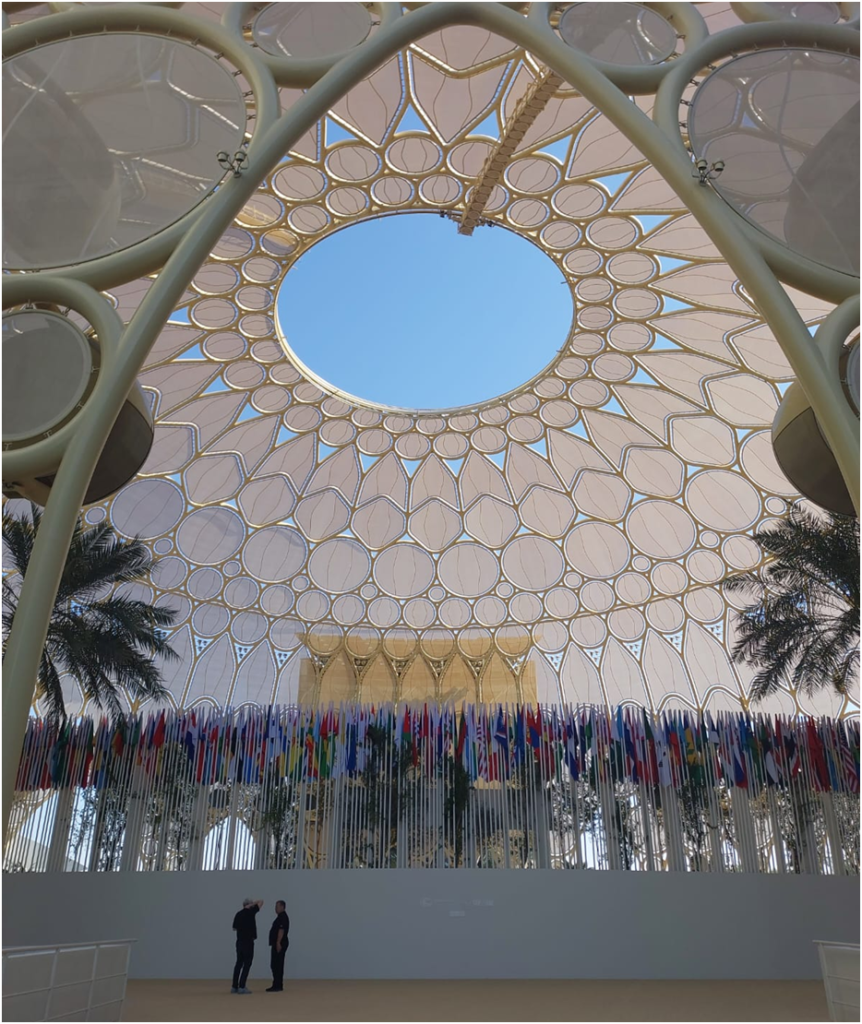
At the 28th Conference of Parties (COP28) in Dubai, youth emerged as pivotal players in global climate negotiations, marking a significant shift in their influence and participation. Despite the skepticism towards the host country and outcomes, the event underscored the growing importance of youth voices. Initiatives like the ‘Youth Circles’ and the record-setting Youth Climate Delegates Program exemplified this trend, while the appointment of H.E. Shamma Al Mazrui as the first Youth Climate Champion institutionalized their role. As COP29 in Baku approaches, the expectations for concrete, immediate action to address the climate crisis remain high, particularly from the youth who demand more than diplomatic platitudes.
The Evolution of Youth in Climate Advocacy
Many speak of a recent ‘youth-led climate awakening,’ reflecting a time when youth voices were often overlooked in climate debates. Historically, young people were given symbolic roles and rarely allowed to participate directly in discussions with policymakers and decision-makers. This began to change significantly with the Fridays for Future movement, led by Greta Thunberg. In 2018, as the world’s attention focused on Thunberg, a young Swedish girl protesting for better care of the planet, young people started to be recognized as legitimate negotiators and key actors in climate talks. This surge in interest greatly increased awareness of climate change and the planet’s future.
In preparation for the conference, events such as “‘Road to COP28’” introduced various initiatives to gather first-hand insights on key topics to be discussed. Among these initiatives was the creation of “Youth Circles” (Photo 2), which fostered not only international but, most importantly, intergenerational discussions between activists, scientists, policymakers, and government officials. The United Arab Emirates (UAE) quickly understood the crucial role of youth in climate talks. In this context, COP28 granted youth a particularly important place in the dialogue by facilitating discussions, creating opportunities, and curating specific programs to engage and promote their ideas, thus providing young people with a legitimate platform to voice their concerns.
Amplifying Youth Influence at COP28
Indeed, COP28 has proven to be one of the first global climate negotiation forums to place young people at the forefront, making them true stakeholders in the debates. From the introductory “Road to COP28” event to the final day, young people served as key speakers, presenters, and negotiators. The platform offered by COP28 marked a significant advancement in the legitimization process that youth activists had been fighting for. In fact, youth voices were enhanced on various fronts.
In legal terms, countries and parties present at COP28 negotiated the institutionalization of the Youth Climate Champion (YCC) presidency within the United Nations Framework Convention on Climate Change (UNFCCC) process. This formalization provided marginalized communities with the assurance of their position in the dialogue, granting them the security and ability to remain represented and heard. This coincided with the introduction of the first-ever Youth Climate Champion, H.E. Shamma Al Mazrui, who formally represented the voices and aspirations of young people.
Furthermore, known for its ambitious initiatives, Dubai and COP28 did not shy away from setting records in youth engagement. The COP28 Youth Climate Delegates Program, which presented a record number of international delegates (110), was the largest youth delegation yet. Alongside the Dubai Youth Climate Dialogue Forum, where youth could discuss climate issues directly with high officials from the government, the Global Youth Statement was formed with 70,000 inputs from young people across over 150 countries. This extensive engagement underscored COP28’s record-breaking efforts in giving a voice to youth. However, these achievements have not overshadowed or deflected the criticisms the conference has faced.
International Backlash Despite Genuine Efforts
While Expo 2020 in Dubai was undeniably successful with minimal criticism, COP28, located in the Expo’s exact setting, faced a significant share of backlash. It is crucial to note that many criticize the fundamental concept and the symbolic outcomes of the COPs generally, without targeting the recent one in Dubai specifically. However, it is undeniable that COP28, in particular, proved to be controversial because of its location and presidency.
Indeed, Dr. Sultan Al Jaber, Minister of Industry and Advanced Technology, COP28 President, and CEO of the Abu Dhabi National Oil Company (ADNOC), is at the center of these criticisms (Photo 3). Nicknamed “Oil Boss” by the media, Dr. Al Jaber presided over the COP in November and December of 2023, advocating for an immediate need for change in the energy sector while actively managing the third-largest oil company in the Middle East.
On one hand, having the director of ADNOC as the president of COP was seen as a strong message indicating cooperation and efforts towards sustainability and energy transition from major polluters. Conversely, a more radical narrative emerged, accusing the UAE and COP28 of being a façade to create an illusion of action taken for a sustainable transition in the oil sector, with little practical change enforced on these companies. Among these critics, young people played a significant role.
The Next Generation’s Uncompromising Climate Demands
The young generation of climate activists and leaders is known for being skeptical of purely diplomatic and soft law-based agreements. Instead, they urgently call for profound reforms and bold changes, viewing these as the only viable solutions to the current climate crisis. Consequently, COP28’s outcomes did not meet the youth’s strict and demanding expectations. These outcomes can be summarized into two key resolutions.
The “global stocktake,” considered the central outcome of COP28, encompasses all the negotiation elements and provides countries with the basis to develop stronger climate action plans by February 2025. Additionally, there was the “signaling of ‘the beginning of the end’ for the fossil fuel era” (UNFCCC). As UN Climate Change Executive Secretary Simon Stiell puts it: “Whilst we didn’t turn the page on the fossil fuel era in Dubai, this outcome is the beginning of the end.”.
While these solutions are objectively an advancement and a step closer to a more sustainable world, critical observers, including youth, were visibly disappointed by these outcomes. They quickly rejected these general, imprecise, and unenforced solutions, viewing phrases such as “beginning of the end” as insufficient, downplaying the urgent character of the energy transition. The primary argument rests on the fact that there is no time to lose when fighting climate change, and vague narratives and solutions, such as “calling on parties to act,” are simply not sufficient. Greta Thunberg even described the negotiations as “a stab in the back for those most vulnerable” emphasizing that the conclusions were “not enough.”
Therefore, the youth have been very critical of the efforts, creating a severe and unforgiving image of their generation when it comes to climate negotiations. Considering these demands and the youth’s growing importance, it is crucial to identify key aspects to focus on during future climate negotiations, including the upcoming COP29 in Baku.
Preparing for COP29 in Baku: Key Considerations
The youth, unforgivingly, claim their right to a safe, secure planet and future. Through various initiatives on many fronts, such as attempts to criminalize harm to the planet and calls to stop ecocide at the International Criminal Court, young people are tired of waiting for diplomatic and geopolitical affairs to settle. They seek clear, concrete, and immediate solutions, which they demand to be a part of. COP28, the first COP to ever stress youth input so strongly, provided an international platform to legitimize their presence, but it is unlikely the youth will stop there. The lessons from past COPs, and particularly the recent one in Dubai, show that young people are unforgivably demanding. This means that COP29 has great challenges ahead in meeting youth’s expectations and considerations. These include not only granting young people a place at the negotiation table but also delivering immediate, accountable, and properly enforced outcomes.
Thus, Baku has a significant responsibility to maintain the standards set by COP28 and to further develop and promote youth involvement in climate negotiations.
Conclusion
The global youth have long been ignored in climate talks, but over the past decade, they have risen to be key actors at the negotiation table. Therefore, what is to be remembered from COP28 in Dubai is the meticulous demands and expectations of young people regarding climate negotiations. As the climate crisis becomes more urgent, the youth refuse to accept merely diplomatic settlements and reject delays in solutions. They advocate for accountable, urgent, and concrete action. While their voices have been given a legitimate and institutionalized platform to express themselves, we are yet to witness the radical action they call for, making COP29 in Baku particularly interesting and important for the youth.
Paulina Sławek
Photos :

Photo 1: Main entrance reception at COP28 in Dubai, UAE (07/12/2023) Jakub Piątkowski

Photo 2: ‘Youth Circles’ at the Road to COP28 event in Dubai, UAE (15/03/2023) Paulina Sławek

Photo 3: H.E. Dr. Sultan Al Jaber’s opening speech at the Road to COP28 event in Dubai, UAE (15/03/2023) Paulina Sławek

Photo 4: Main negotiation hall at COP28 event in Dubai, UAE (07/12/2023), Jakub Piątkowski



